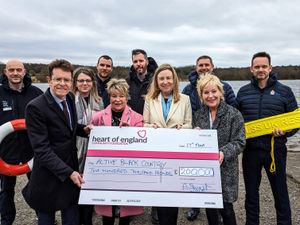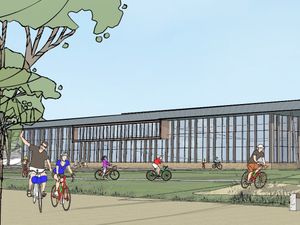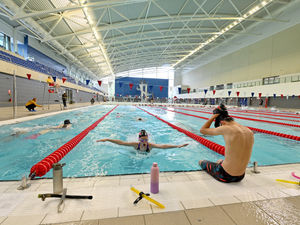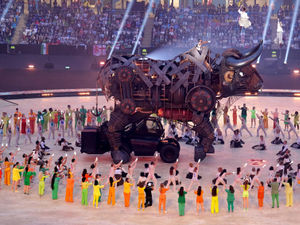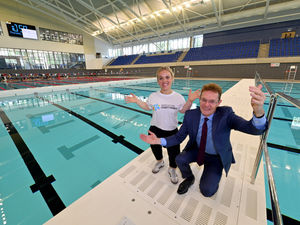Matt Maher: Brilliant, Brum! Commonwealth Games have been an absolute blast
Well, wasn’t that fun?
For 11 days, Birmingham and the wider West Midlands was the focus of the sporting world for 72 nations and territories.
What an 11 days they were. What a show we put on.
While the headlines and plaudits will always, correctly, go to the competitors, the real stars of these Commonwealth Games - the reason seasoned observers are ranking Birmingham 2022 among the best they have ever experienced - were the general public.
Whatever the sport and wherever the venue, they were there in their thousands, more often than not creating ear-splitting noise. With more than a million people having attended events, this may well be a shrewd time to buy shares in hearing aid manufacturers.
There were several moments, the type which get talked about for years, when the volume approached painful levels. Adam Peaty’s redemption at the Sandwell Aquatics Centre, Eilish McColgan’s sprint for victory at the Alexander Stadium and the endless roar which reverberated around Hall Four of the NEC during the final minute of Delicious Orie’s gold medal bout are among those immediately recalled.
But then you also had Telford badminton player Jess Pugh, playing in an atmosphere the like of which she had never experienced, or Wolverhampton’s Lee Manning and the England team wowing the crowds in the three-on-three wheelchair basketball.
The experience of Walsall's Jim Horton, at 46 the first ever cyclist to represent the Falkland Islands and cheered at every twist and turn of last week's time trial, was a reminder of how the Commonwealth Games epitomises the essence of sport in a way the larger, more serious Olympics never really can.
Everywhere you went, supporters were generous in their support and best of all, good-natured. England’s athletes were backed, as you would expect, yet their opponents respected and celebrated.
The organisers marketed this, in part, as the first major post-pandemic multi-sport event. There was certainly a sense of people eager to enjoy themselves again.
It helps, of course, when the sport delivers in the entertainment stakes. There was plenty at which to marvel there, too, from a regional perspective.
Peaty served up the Games’ most unlikely redemption story, Orie the gold he had promised. At Arena Birmingham, the venue for the gymnastics, Joe Fraser won three gold medals competing with a broken foot and Alice Kinsella overcame inner demons, following a fall in the all-around final, to clinch a heartwarming gold on the floor.
Cannock’s Lily Walker made the transition from fan to history maker as part of the first England team to ever win Commonwealth gold in hockey, while Walsall’s Dan Powell took a brilliant judo gold and his team-mate Gemma Howell, so often in the past struck by misfortune, an emotional silver to continue her career renaissance.
Not everyone went home entirely satisfied. Matt Hudson-Smith arrived at the Games with only gold on his mind but had to settle for silver, thanks to an extraordinary breakthrough performance from Zambian teenager Muzala Samukonga.
There were also, most notably in athletics, some big names who chose to stay away. And yet as the Games progressed, increasingly it felt as though they were the ones missing out.
The relevance of the Commonwealth Games will always be debated. Finding host cities, not to mention countries, is getting no easier. Birmingham, lest we forget, only grasped the baton when it became apparent Durban would be unable to deliver. It is pointless to pretend the Games’ do not face some fairly big challenges.
Yet the ultimate judges will always be the fans and the size of the crowds at Birmingham 2022 suggest they remain viable. These Games were also significant in having the largest ever programme of para sports and handing out more medals to women than men. T20 cricket, a sport which helped tip the balance, proved hugely popular.
The staging of Birmingham 2022 deserves to be remembered as a triumph. Despite the reduced planning time, despite all the fears of the event’s spread out nature and the extra demands placed on a less than stellar transport infrastructure, the region pulled it off.
Organisation was sound, volunteers friendly and knowledgeable and the shuttle buses which ferried spectators to various venues efficient and widely-used. Those who worked to bring the Games here and who believed it could work, deserve the credit coming their way.
Attention will quickly shift, though, to what comes next. What are we all going to get out of this in the long-term? Hearing the word “legacy” is about to become rather tiresome. The lesson of London 2012 is that talking about one is far easier than leaving one.
Some things take care of themselves. In the past fortnight, many people will have visited the region for the first time. Many of them will no doubt come back, having learned about our home what we’ve always known but never really liked to shout about.
It would help further if they were given a reason. Having successfully hosted the biggest multi-sport event outside the Olympics, why not push for more? Venues fit to host world championships in athletics and swimming are already here, we’ve all seen them. Talk of bidding for such events must be followed through.
The biggest impact, however, must be felt at the grassroots. Peaty left Birmingham with an impassioned plea to the government and councils to stem the steady closure of swimming pools. Yet he could have been talking about any number of sports which currently lack for facilities.
For the next few days and weeks politicians and regional leaders will utter the L word and make a variety of promises about how they intend to deliver. Listen, remember and be ready to challenge should they fail to be kept. These past 11 days were too good to let waste.

